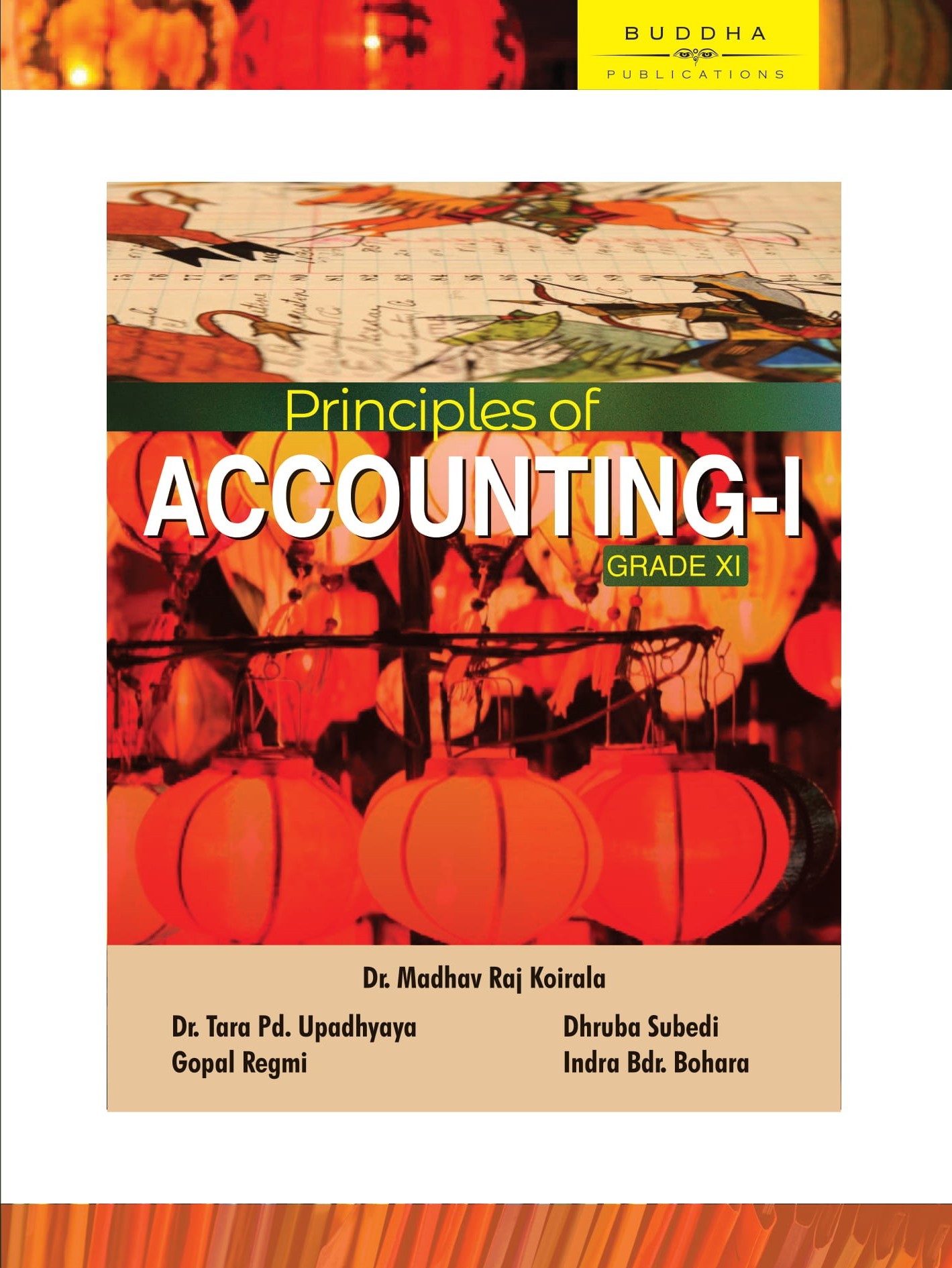
Principles of Accounting - I (Grade XI)
Prof. Dr. Madhav R Koirala, Prof. Dr Tara Pd. Upadhyaya, Dhruba Prasad Subedi, Gopal Regmi, Indra Bdr. Bohara- ISBN: 9789937303538
- Version: English/Nepali
- Price NRs. 845
- Published Year 2020
- Pages: 724
- Avaliablility: In stock
- Also Available: Solution Manual
‘Principles of Accounting–I’ is a unique course offered by the Higher Secondary Education Board. It is an important course of the Higher Secondary Level which effectively helps in building the career of the readers. This book offers complete reading material to the readers on the subject, including sufficient numerical problems to be solved in the classroom and assignment as homework.
The team of authors highly appreciate the warm reception shown towards on the first and second editions of “Principles of Accounting–I”. We are inspired to bring the enlarged and updated second edition of the book. We solicit the valued comments and suggestions from our esteemed readers expecting such type of continuous support in future also for making further improvement of the book. We have attempted to clarify many issues relating to the subject matter in terms of theory as well as practical.
The pedagogical aspect of this book is distinct from that of the others. The book emphasizes the following major pedagogical features in the teaching and learning process:
LEARNING OBJECTIVES Every chapter emphasizes the specific learning objectives with their importance. The listing of objectives has been made to enable the readers to achieve their learning goals by keeping them constantly in mind. Every chapter expects the readers to achieve some specific objectives. The theoretical as well as numerical problems are designed in keeping with those objectives.
THINGS TO REMEMBER (TTR) Important concepts and points have been emphasized in the boxes entitled ‘TTR’. These boxes help to quickly overview the main points of the particular section as well as additional information required to the readers. TTRs have also been used to solve the various confusions regarding methods and calculation procedures.
LIST OF KEY TERMS In every chapter, key terms have been introduced for a quick review and for linking purposes of the related terms. These key terms help to clarify the meaning of the related terms used in the chapters.
THEORETICAL QUESTIONS At the end of every chapter, there is a section named "Theoretical questions" which lists small but challenging questions. These questions help the readers to develop their theoretical understanding of the related chapter. Such theoretical questions are also useful from the view point of the final examination of HSEB.
MODEL ANSWER OF THEORETICAL QUESTIONS At the end of the chapters, there is a section named "Model Answer of Theoretical Questions" which lists the model answer of probable questions. This part helps the readers to develop their theoretical understanding of the related chapter. Such model answer guidelines to the readers, how the answer of theoretical questions should be written in HSEB exam.
CLASS WORK AND HOME WORK PROBLEMS This book has separated the numerical problems into classroom and homework sections. This book tries its best to break the numerical problems into a range from simple to complex. Sufficient numerical problems have been provided to be solved in classrooms and as home assignment. Class work and home work problems have been arranged in such a way that home work problems can easily be done by the readers after their class work.
PORBABLE QUESTIONS FOR HSEB EXAM At the end of the every chapter, there is a section named “Probable Questions for HSEB Exam”. Such section helps the reader to develop their potentiality regarding the numerical problems which may be asked in Board Exam of HSEB.
MODEL ANSWER At the end of each theoretical chapter model answer for theoretical questions is given. Such model answers are highly fruitful to the students which help to develop their skill to answer on theoretical questions. Generally such model answers are based on the question repeatedly asked in HSEB Exam.